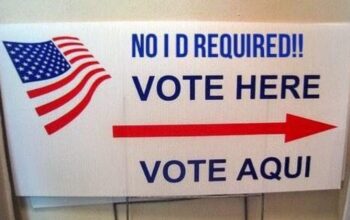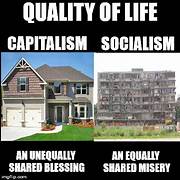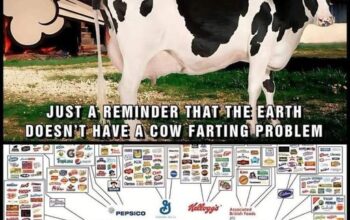Great news for private property rights. The Supreme Court has ruled that unions may not come onto agriculture property and stop workers from their jobs to promote the unions. Imagine if folks were allowed as California law allows up to three hours a day, 120 days of the year to stop production to hear a union organizer. Happily this has been declared unconstitutional.
“We think it adopts exactly the theory that we argued: that when the state appropriates an easement for access to property, it has to pay for it — even if that easement is not a 24/7 authorization for access,” the Pacific Legal Foundation lawyer said.
With this ruling, Kieser said his clients will be free from union access — “at least until California is able to tailor its regulation to fit within any narrow exception that might exist.”
He emphasized Wednesday that the opinion marks a groundbreaking victory for private business.”
Union’s act like they own the business—they do not. They do not own the schools—the people do. It is time that unions start acting responsibly, not like heavy handed goons.
California Farms Win Challenge of Union-Organizing Law

ALEXANDRA JONES, Courthousenews, 6/23/21
Property owners told the Supreme Court that labor drives have disrupted busy harvest operations, and that there are more suitable locations to organize somewhere where workers won’t be distracted.
WASHINGTON (CN) — The Supreme Court on Wednesday uprooted a California law that grants union representatives three hours a day, 120 days a year, to organize farmworkers on the farm’s own property.
Chief Justice John Roberts delivered the 6-3 majority opinion, split on party lines, where he called it unconstitutional to make farms open up their doors to labor organizers outside of working hours.
“The access regulation grants labor organizations a right to invade the growers’ property,” Roberts wrote. “It therefore constitutes a per se physical taking.”
As protected by the California statute, union representatives are given a four-month window to enter farm properties for the purpose of organizing. They can do so for one hour before and one hour after work, as well as for one hour during employees’ lunch breaks.
Chris Kieser, an attorney for strawberry grower Cedar Point Nursery and citrus and grape grower Fowler Packing Co., said in a phone call Wednesday that he and his clients are thrilled with the opinion.
“We think it adopts exactly the theory that we argued: that when the state appropriates an easement for access to property, it has to pay for it — even if that easement is not a 24/7 authorization for access,” the Pacific Legal Foundation lawyer said.
With this ruling, Kieser said his clients will be free from union access — “at least until California is able to tailor its regulation to fit within any narrow exception that might exist.”
He emphasized Wednesday that the opinion marks a groundbreaking victory for private business.
“This is the first time that the court has explicitly held that when the state appropriates an easement, it’s a per se taking regardless of the scope of the access granted. And that is a huge win for property owners nationwide,” said Kieser.
As the chief justice explained in Wednesday’s opinion, the type of property access granted via the California law was unique in scope.
“Unlike a mere trespass, the regulation grants a formal entitlement to physically invade the growers’ land,” Roberts wrote. “Unlike a law enforcement search, no traditional background principle of property law requires the growers to admit union organizers onto their premises. And unlike standard health and safety inspections, the access regulation is not germane to any benefit provided to agricultural employers or any risk posed to the public.”
Justice Stephen Breyer reached the opposite conclusion, however, lamenting Wednesday that, in the majority’s view “virtually every government-authorized invasion is an ‘appropriation.’”
Joined in his 17-page dissent by Justices Sonia Sotomayor and Elena Kagan, Breyer insisted that the California law doesn’t actually appropriate anything.
“It gives union organizers the right temporarily to invade a portion of the property owners’ land,” Breyer wrote. “It thereby limits the landowners’ right to exclude certain others. The regulation regulates (but does not appropriate) the owners’ right to exclude.” (Parentheses in original.)
California Solicitor General Michael Mongan, meanwhile, had argued before the justices in March that the law was designed to minimize incursion on property rights. Representatives from the California Department of Justice did not immediately return a request for comment Wednesday.
Cedar Point and Fowler Packing brought the suit against four members of the Agricultural Labor Relations Board in 2016. In 2019, the Ninth Circuit affirmed dismissal of the case.



